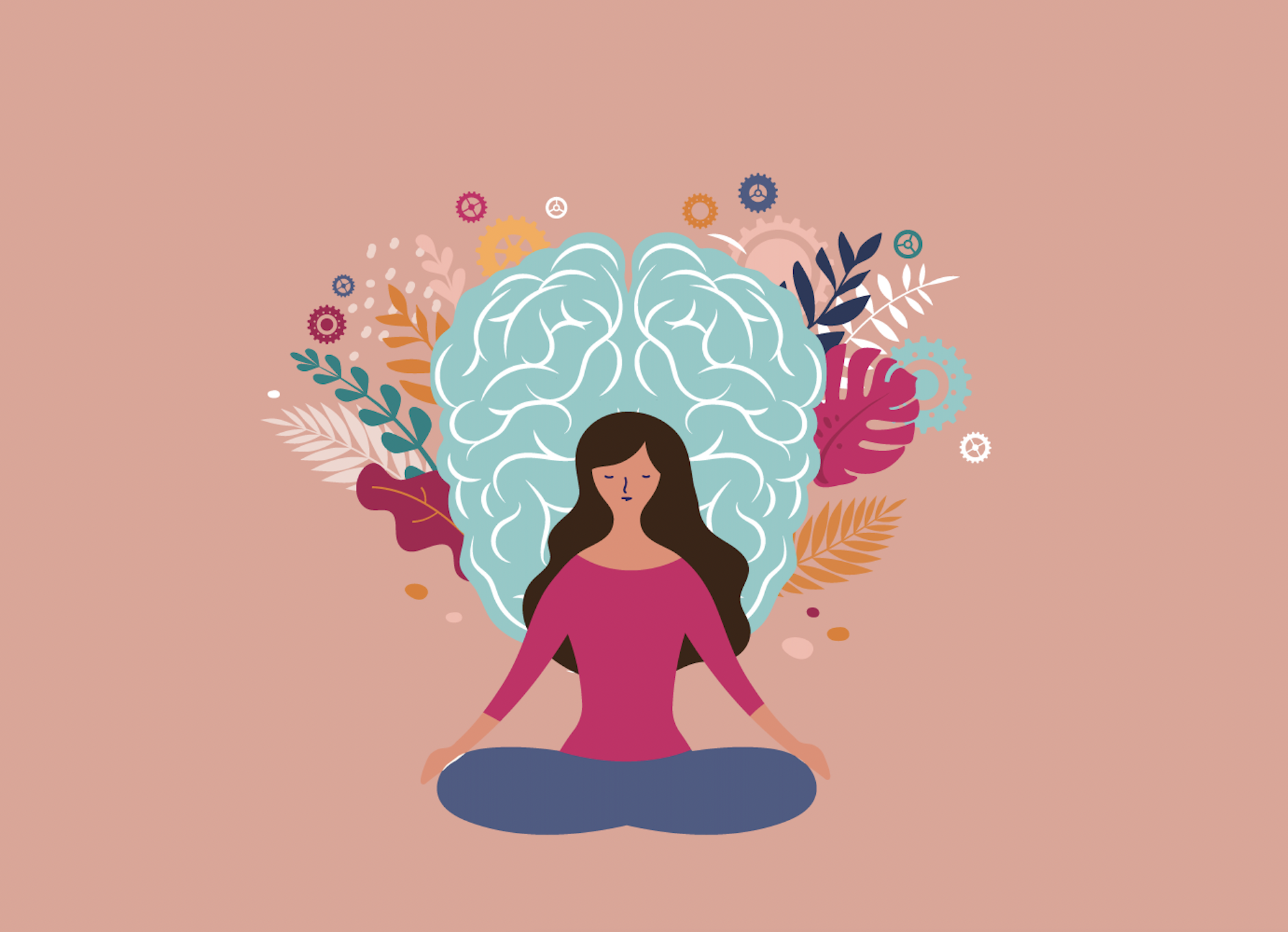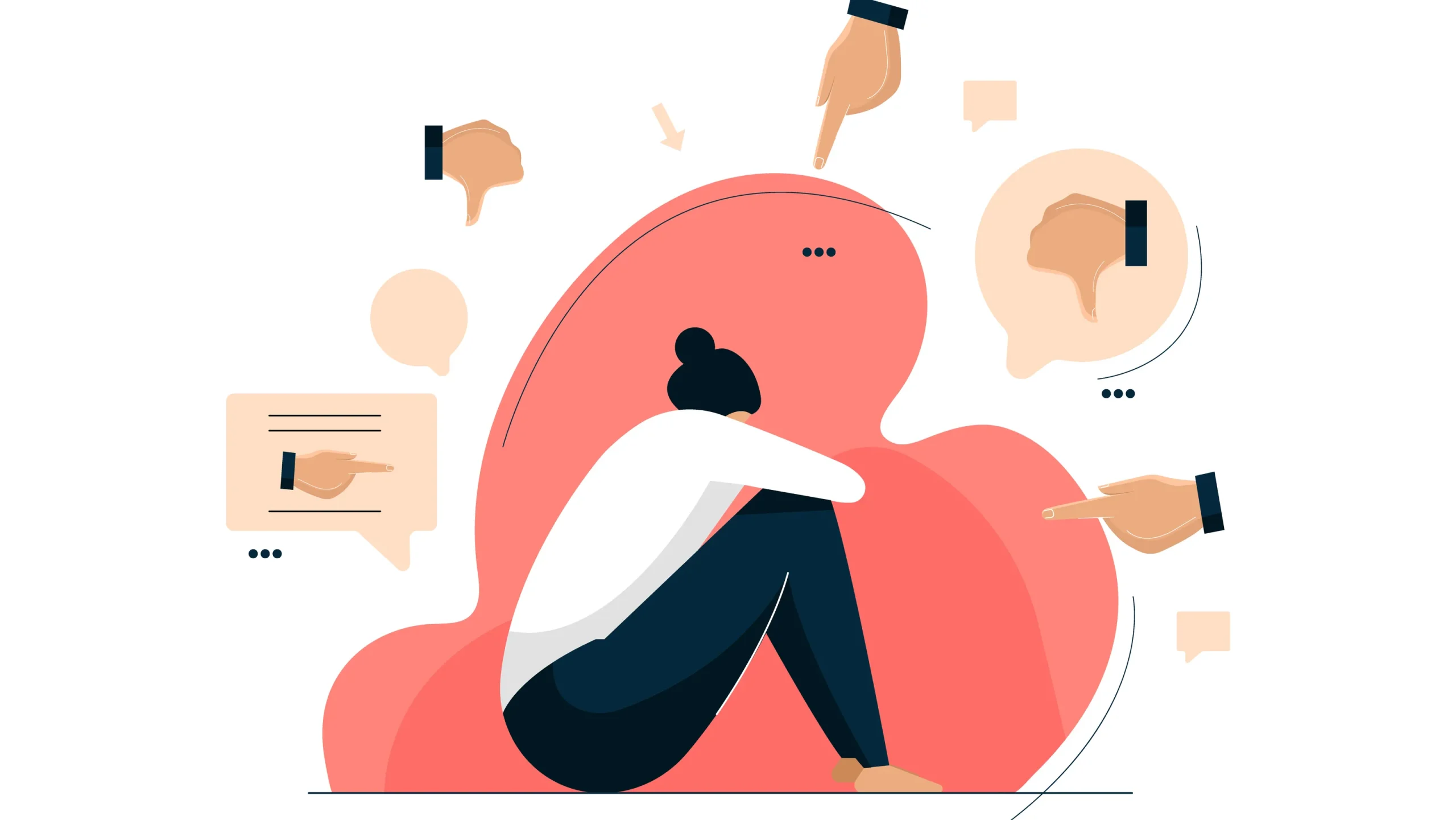The Busy Mind
BEEP BEEP BEEP. Your alarm goes off and you are off to the races, running around task-to-task, eating on the run, moving, accomplishing, posting, texting, emailing, driving, saving, checking, exercising, faster, more, better. At risk of sounding like the Daft Punk song “Technology” here, I hope to make the point that our lives are so insanely task-oriented and packed full that most of us forget to stop, breathe, take in the moment, and be present to our lives. We are living them, but are we?
Most of us are willing to work incredibly hard to have “the good life”, but how good is it if we aren’t there to fully experience this one, single, life we get to live. Socialized from an early age to find pride and identity in our thinking power, many of us are hell bent on accomplishing, producing, and doing. We want to showcase the fruits of our minds. We graduate from year to year, applauded, by what our minds are able to produce and accomplish. We begin to fuse our sense of “me” into the words, images, and contents of our thought lives. Why wouldn’t we? We are rewarded for it by everyone around us from the moment we are born. But are we the sum total of what our minds produce? Is there more? Can we have more peace and joy in this life?
MindfulnessMindfulness in CBT involves focusing on the present moment without judgment. It helps individuals be... can teach you that there is beauty and richness in allowing and participating in even the difficult feelings. It’s all experience, it is all elements of living this temporary life, so why not show up for it? Learning to move into emotions, rather than away from them, is mindfulness and can entirely change how we manage difficult feelings and states of mind. What is a “good cry” but the ability to fully participate in our own sadness. Isn’t there immense relief when you are able to do that?
Further, mindfulness can help you slow down, reduce stress, anxiety, and experientially help you begin to solving the dilemma of “who am I.” It can help you loosen the overwhelming experience of living solely in your mind and help you to dis-identify with the thoughts that stampede through your everyday consciousness and awareness. If you look deeply enough you begin to realize that we aren’t even the authors of our own thoughts. They arrive without our consent. Our power is quite literally in how we attend to what shows up in our mental lives. Over time, we tend to produce more thought, not less. The thinking mind is a tool we have at our disposal, not the vehicle from which we should operate our lives. One of my favorite meditation teachers says “The mind is a beautiful servant, but a terrible master.” Learning to use the mind when needed and rest our awareness in a different way of being is the key to at least some important aspects of mental health.
What is Mindfulness, Is it the same as Meditation?
Have you ever driven somewhere and had no recollection of how you arrived at your destination? This is mind-less-ness. You were likely so lost in thought that you hadn’t paid much attention to the experience of driving. So deep in thought, you failed to notice the feeling of the steering wheel underneath your fingers, the air conditioning in your face, or the noise of your car or passing vehicles. The experience of mindfulness is the complete opposite.
Meditation is the practice of mindfulness. Meditation is the discipline of training your attention to be fully present in the moment, open, without judgement. It is not religious, not spiritual (although people often report spiritual experiences after some time), just a simple exercise that allows you to train your attention to be in-the-moment. This moment, right now, that you are already in. Meditation is the activity of training your mind/attention in this way. Mindfulness, on the other hand, is the product of practicing meditation on a regular basis. It is the sum total consciousness that arises from regular meditation practice. Mindfulness is the ability to move through your day open, aware, and present to your moment-to-moment experience. Over the years, these terms have come to mean the same thing but technically there is an important nuance.
As I am sure you have hard, there is a lot of buzz about the practice of meditation and how it can transform your life for the better. So many people “download the app” but have yet to commit to practicing daily. According to research, meditation has nestled itself into the pantheon of no-brainers like brushing your teeth, eating well, and exercising. So why the delay? Well, first, it is hard and potentially frustrating. Even more so, it’s sort of an ambiguous thing to do. People often aren’t sure if they are doing it right, or if it is even helping at all. In this article, I am going to attempt to answer some of the most common questions about meditation and mindfulness practice.
On a personal note, next to my own journey in psychotherapy, mindfulness has been the second leading change agent in my life. In fact, so much so, that I wrote my dissertation on mindfulness meditationMindfulness meditation is a practice of focusing attention on the present moment, often through brea... and its effect on mental health within training psychologists. I have practiced daily for almost 15 years now. The impact of practicing on a regular basis cannot be overstated. I hope you give it a try. Mindfulness is an integral part of our approach to therapy as well as our strategies to helping patients manage difficult or overwhelming emotions when they arise in the course of therapy. Mindfulness plus therapy is a winning combination.
Why Mindfulness? Why Now?
Modern, technological life has become the antithesis of mindful living. Our attention is constantly being pulled in endless directions. We wake up to an alarm and our mind kicks into gear right away listing the to-dos of the day. We race down to the coffee maker, get the kids ready for school, brush our teeth, reply to emails, race to work, respond to texts endlessly throughout the day, check our social media, exercise, lock into a tv show, reply to more emails, and go to bed (not an exhaustive list). Repeat. Think of how different your day was today compared to someone even two decades ago. Technology has made things easier to do, but instead of catching ourselves a break with it, we just sped up the time in which we do things and added more. Many of us are anxious, overwhelmed, disconnected, depressed, and wondering if this is all there is? Cue mindfulness.
Mindfulness is a solution to the madness of our day. It isn’t something recently discovered, the Buddhists have known about it for over 2500 years. The practice has taken the center stage in Western societies because we are crying out for balance in our lives. In fact, in 1990 there were less than 10 articles published on mindfulness; by 2010, there were over 350 articles published showing psychological, physiological, and emotional benefits to a wide range of populations (Davis & Hayes, 2011). Today more literature is produced on mindfulness than almost any other single topic in psychology.
As a society we have become addicted to thought, buried in our minds. We are being buffeted on all sides by discursive thought. The result is stress. Mindfulness is a practice of non-doing, yet, is highly “productive” to living the good life. It is a paradox you are only able to realize through practice. The insanity starts to come into focus. Take this moment. Are you rushing ahead to get to the bottom of the article? Do you notice your breath? Feelings present while reading this? The movement of your eyes across the page? Paying attention in the present moment means to direct one’s full attention to whatever it is that is happening right now. Mindfulness is a challenge you take on to become habitually present in your life. In western culture, this can be a daunting task and one that does not come naturally, as the lifestyle is entrenched with technological distractions, multi-tasking, and time demands. Mindfulness is a perfect solution to mental health in modern life.
What are the benefits of Mindfulness?
Mindfulness practicesMindfulness Practices involve techniques that encourage present-moment awareness and acceptance, oft... have become clearly beneficial in a variety of physical and psychological domains. Empirically-based research on mindfulness has uncovered a few important areas that mindfulness seems to target particularly well. Institutions like Oxford, Cambridge, Stanford, Harvard, and UCLA all have dedicated Mindfulness research programs today. Like me, if you need hard science for persuasion, I have listed some of the major studies in the field and appropriate citations:
Mindfulness practices are useful in sharpening and creating flexibility within cognitive domains. First, mindfulness practice has been shown to increase cognitive flexibilityCognitive flexibility refers to the ability to adapt one’s thinking and behavior in response to ch.... Siegel (2007) found that people who practice mindfulness meditation appeared to develop the skill of self-observationSelf-observation is a mindfulness practice where individuals pay close attention to their thoughts, ..., which neurologically disengages the automatic pathways created by prior learning and enables present-moment input to be integrated in a new way. Meditation also activates brain regions associated with more adaptive responses to stressful or negative situations (Cahn & Polich, 2006; Davidson et al., 2003). When this area is activated, it is associated with faster recovery to baseline after being negatively provoked (Davidson et al., 2003).
Associated with increases in cognitive functioning, mindfulness also cultivates and enhances attentional processes. Van Den Hurk et al. (2010) found that expert mindfulness meditators scored significantly higher on attention network tests than a control group of matched age and gender participants. Furthermore, Moore and Malinowski (2009) indicated that those who practice mindfulness meditation were better able to focus attention and suppress distracting information. The researchers compared a group of experienced mindfulness meditators with a control group who had no mindfulness experience and found that the group of experienced meditators had significantly better performance on all measures of attention and had higher self-reported mindfulness. Additionally, mindfulness meditation practice and self-reported mindfulness were directly correlated with cognitive flexibility and attentional functioning.
Not only has mindfulness proven to be beneficial for attention and cognitive flexibility, but also it has also been shown to improve working memory. In a study done by Jha, Stanley, and Wong (2010) provided mindfulness training to a group of individuals in the military during a highly stressful deployment time. The participants who received mindfulness training showed significant increases in working memory, and meditation practice was directly related to self-report of positive affectAffect refers to the experience of feeling or emotion that can be expressed through facial expressio... and inversely related to negative affect. The control group showed no improvement, and, in fact, their working memory decreased during times of stress.
Another consistent benefit of practicing mindfulness is reduced ruminationRumination refers to excessive and repetitive thinking about negative events or problems, which can ... and overall stress reductionStress Reduction refers to techniques and practices aimed at decreasing stress levels, which can imp.... Several studies have provided evidence that mindfulness practices decrease rumination and overall stress. Chambers, Yee Lo, and Allen (2008) asked 20 novice meditators to participate in an intensive 10-day retreat. At the end of the retreat, measures showed that participants had significantly decreased negative affect compared to the control group. Additionally, participants showed significantly less depressive symptoms and rumination. The study noted that participants saw an increase in working memory and were better able to sustain attention during a performance task compared to controls.
One of the most profound effects of mindfulness practice is its ability to reduce stress. A meta-analysis conducted by Hoffman, Sawyer, Witt, and Oh (2010) examined 39 studies that utilized MBSR and MBCT to reduce stress and concluded that mindfulness-based therapyMindfulness-Based Therapy incorporates mindfulness practices to help individuals develop awareness o... was highly effective in reducing stress and altering affect and cognitive processes that underlie many clinical disorders. Farb et al. (2010) showed similar results. They had a group of participants either assigned to an 8 week MBSR group or to a control group. Measures were administered pre and post mindfulness training. At the end of treatment, those who participated in the MBSR group showed significantly less anxiety, depression, and somatic distress compared to the control group. Participants were also administered neuropsychological assessments using an fMRI. Results showed that the mindfulness group had significantly less neural reactivity when watching “sad and distressing” films after participating in the training. Additionally, Farb et al. noted that participants displayed distinctly different neural responses while watching the films compared to when they watched the film before the MBSR training. Mindfulness actually changes neural pathways and patterns of activation in the brain.
Mindfulness also positively impacts one of the most important aspects of human life: relationships. In fact, mindfulness has been shown to be a single predictive factor in relationship satisfaction (Barnes, Brown, Krusemark, Campbell, & Rogge, 2007; Wachs & Cordova, 2007). Empirical evidence has shown that mindfulness protects against relational conflict (Barnes et al., 2007) and is positively associated with the ability to express one’s self in various social situations (Dekeyser, Raes, Leijssen, Levsen, & Dewulf, 2008). Fredrickson, Cohn, Coffey, Pek, and Finkel (2008) asked eight long-term meditators about traits they believed were developed during mindfulness practices that impacted relationships. The themes that emerged from their responses were awareness, dis-identification from emotions and thoughts, increased acceptanceAcceptance in CBT involves acknowledging difficult thoughts or emotions without trying to change or ... and compassion, and loving-kindness. The meditators also noted less reactivity, greater feelings of freedom and safety in relationships, and a new understanding of the connections between people as factors of mindfulness that directly affected their relationships.
Further, those who practice mindfulness report being more in-tune, attentive, and empathic to others’ thoughts and feelings (Goleman, 2006). Positive effects have been found even with brief mindfulness training. Davidson et al. (2003) found that brief training increased positive affect and decreased anxiety. Additionally, physiological changes have been found in those who engage in mindfulness practices regularly. In their meta-analysis, Seeman, Dubin, and Seeman (2003) found that regular practices of meditation were correlated with lower blood pressure, lower cholesterol, lower stress hormone levels, and differential patterns of brain activity.
Lastly, studies have also found that mindfulness practice can have a positive impact on well-being, reduce psychological distress, improve emotional regulationEmotional regulation refers to the ability to manage and respond to emotional experiences in a healt..., decrease state and trait levels of anxiety, and assist in the development of coping and social skills (Davis & Hayes, 2011; Walsh & Shapiro, 2006).
Get started with Mindfulness: A basic practice
- Find a quiet place to practice. Sit with your back straight and try to settle into a relaxed, but alert posture. Set an alarm for 10 minutes to start.
- Close your eyes and for the first 60 seconds pay attention to what your mind seems to be up to at this moment in time. Notice thoughts, images, sensations in your body. Do nothing with them, don’t judge or manipulate, but just become aware. Imagine sitting in a move theater, alone, staring up at the screen, awaiting what will appear on the screen next.
- Next, find your breath. Focus your attention specifically on the space of your nose and mouth. Become intensely focused on the raw sensations of breathing. Feel the cool air go in your nose, round the back of your throat, the pause between the in and out breath, the warmth of an exhale, how it passes your tongue, lips, and back into the atmosphere. Stay intimately connected and precisely aware of the sensations of breathing.
- Your mind will wander, almost right away. When you notice this has occurred, bring your full attention back to the breath. Feel the next inhalation and all of its corresponding sensations, and the exhalation once more.
- Your goal is to stay connected to the breath. Even good thoughts (e.g. “I am doing this! Yay!”) are cause to re-orient back to your breath again. Remember, allow, allow, allow. Don’t fight anything that comes to mind. Notice, allow it to pass, back to the breath.
- At the end of a meditation, take a second to sit for a minute more. Try and harness the awareness you have found at the end of the meditation and bleed it out into the manner in which you move through the rest of the day. Find moments throughout the day to notice your breath, come out of thought, and enter back into the moment you are in.
How do I know if I am Doing Mindfulness Meditation Properly?
A common myth is that meditation is “clearing your mind.” This seems too aggressive. You aren’t being forceful at all. In some ways, you are doing just the opposite. The goal is to allow everything that shows up in your awareness, yet re-orient to your breath. When your attention is pulled away from the focal point of your practice, your breath, you gently bring your attention back to the breath once more. If you have to do this 1000 times during a 10-minute meditation, that is still success. Meditation is the act of coming back to your breath again and again. If this is what you are doing during your sessions then you are doing it perfectly. It gets easier over time and the traffic of your mind tends to slow down further and further. It becomes more natural and effortless to enter into mindfulness practice. Keep going and don’t let your mind (thoughts of discouragement) beat you at taming its activity. It kicks and bucks at being tamed in the beginning but learns to love it as time goes on. Mindfulness is the open and engaged awareness that is the product of regular meditation.
Can Mindfulness Help Heal Anxiety and Depression?
Mindfulness is a cornerstone practice if you are looking to improve your mental health. Undertaking any variety of mindfulness training will produce benefit, in a relatively short amount of time too. Research and evidence is clear that mindfulness can help heal anxiety and depression. Evidence also shows that it can reduce stress, regulate mood, create more intimate relationships, and reduce depressive episodes. Of all mental health disorders, those with anxiety and depression seem to benefit the most in our experience. Others that benefit include those with bipolar disorder, substance abuse problems, relationship issues and problems with social anxiety and self-esteem. It is a hands-on, tangible tool that you can start today to improve your mental health. Please reach out to us if you are interested in starting with a psychologist who is adept to mindfulness practice and meditation. We are a great resource for this.
Recommended Meditation App:
Sam Harris, Waking Up App in the App Store both on Apple and Droid. Take the 28 day course (it is free!)





